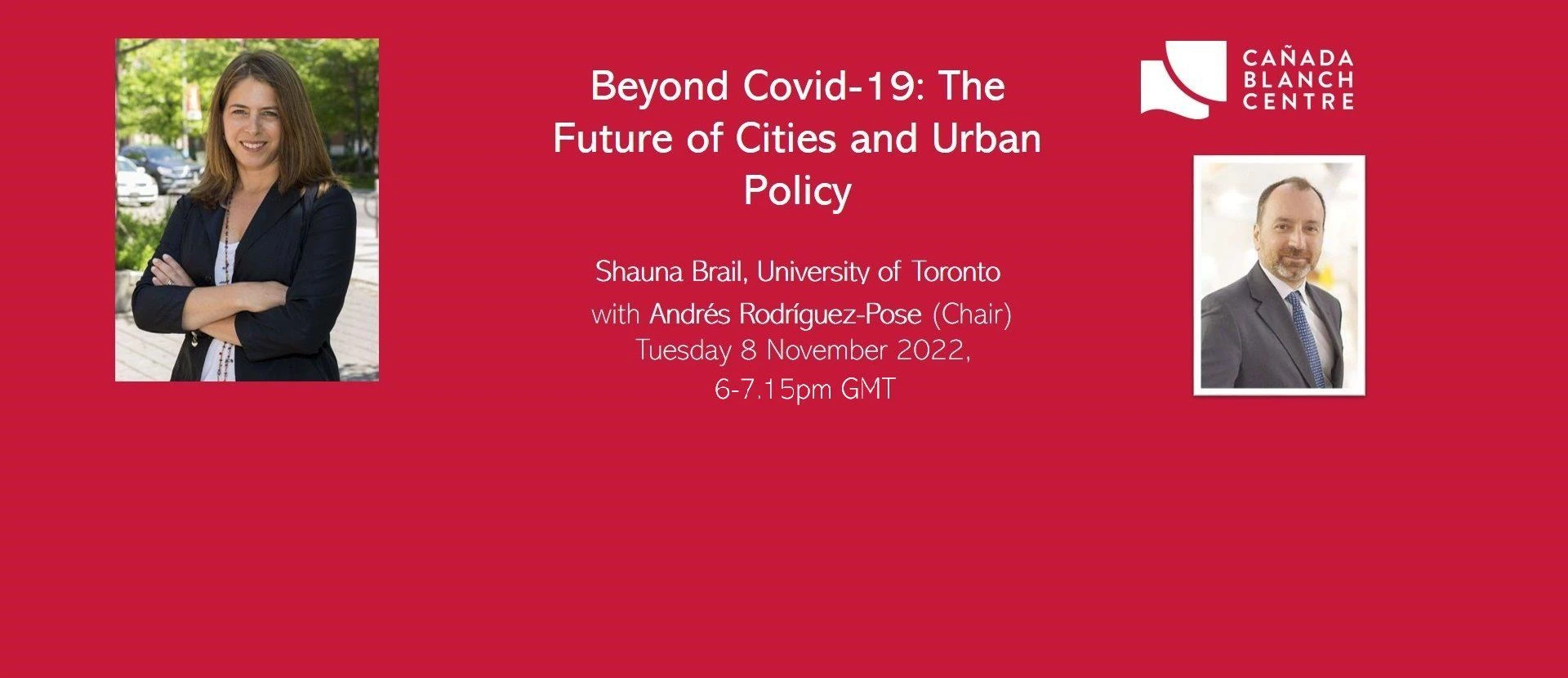Beyond Covid-19: the future of cities and urban policy

Shauna Brail will reflect on the transformation of cities as a result of economic, social, and cultural change after the COVID-19 episode.
In 2020, COVID-19 precipitated sudden and dramatic changes in urban life. City streets became eerily quiet, transit ridership fell dramatically, and office workers transitioned to home-based work while low-wage employees, such as those working in warehouses and grocery stores, faced new challenges. Based on a case study of Toronto, Canada – with examples from global cities including London and New York – this presentation examines the urban crises that were both accelerated and brought on by the pandemic, and the policy responses developed in an effort to minimize economic and social disruption. Tracing the timeline of COVID-19, alongside urban change related to mobility, work and housing, the presentation assesses the role of government policy and implications for the future of cities. Ongoing questions including how cities should invest in urban infrastructure; how cities can adapt central business districts to the emerging reality of hybrid work; and how to manage shifting complexity related to ensuring a supply of sufficient affordable housing in global cities, continue to confound urban policymaking. Beyond pandemic recovery, cities continue to be engines of economic growth even as they grapple with ongoing and emerging challenges.
Meet our speaker and chair
Shauna Brail is an Associate Professor at the Institute for Management & Innovation, University of Toronto Mississauga. As an economic geographer and urban planner, her research focuses on the transformation of cities as a result of economic, social, and cultural change.
Brail is a Senior Associate at the Innovation Policy Lab in the Munk School of Global Affairs & Public Policy and a faculty affiliate at the University of Toronto Transportation Research Institute. She has held the following administrative roles at the University of Toronto: Director, Urban Studies Program; Associate Director, Partnerships & Outreach, School of Cities; and Presidential Advisor on Urban Engagement.
Andrés Rodríguez-Pose is the Princesa de Asturias Chair and a Professor of Economic Geography at the London School of Economics. He is the Director of the . He is a former Head of the Department of Geography and Environment between 2006 and 2009. He is a past-President of the Regional Science Association International (RSAI) (2015-2017) and served as Vice-President of the RSAI in 2014. He was also Vice-President (2012-2013) and Secretary (2001-2005) of the European Regional Science Association.
More about this event
The is the vehicle to achieve the objective of the Fundación Cañada Blanch: developing and reinforcing the links between the United Kingdom and Spain. This is done by means of fostering cutting-edge knowledge generation and joint research projects between researchers in the United Kingdom, and at the LSE in particular, on the one hand, and Spain, on the other.
You can follow us in Twitter.
LSE holds a wide range of events, covering many of the most controversial issues of the day, and speakers at our events may express views that cause offence. The views expressed by speakers at LSE events do not reflect the position or views of The London School of Economics and Political Science.
From time to time there are changes to event details so we strongly recommend that if you plan to attend this event you check back on this listing on the day of the event
LSE holds a wide range of events, covering many of the most controversial issues of the day, and speakers at our events may express views that cause offence. The views expressed by speakers at LSE events do not reflect the position or views of the London School of Economics and Political Science.
